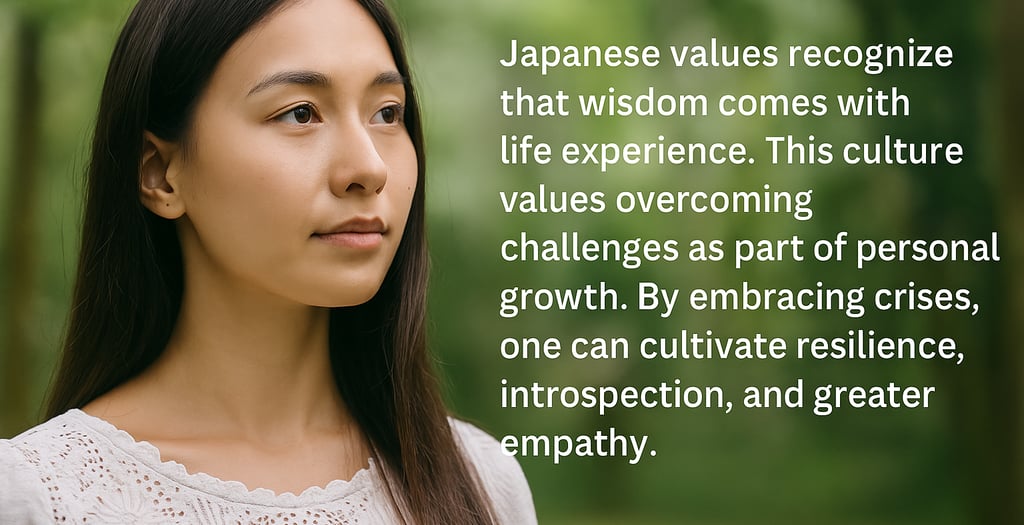Crisis and Wisdom
The Japanese culture holds a unique perspective on life's difficulties, viewing them not as obstacles but as essential parts of personal growth. Rooted in ancient wisdom, the belief is that true understanding and maturity are born from overcoming challenges. This philosophy teaches us to appreciate adversity as a teacher, helping us cultivate resilience, self-reflection, and a deeper connection with ourselves and others. In this blog post, we delve into the fascinating concept of finding wisdom through hardships, exploring how Japanese traditions emphasize the value of crisis in shaping a balanced, harmonious life. Discover why the Japanese advise to "buy the experience of crisis" if you haven’t faced one, and learn how you can apply this mindset to embrace growth in your own journey. Read more on HealingJourneyAcademy.com and discover how adopting this philosophy can empower your mental wellness and emotional freedom.
3/28/20251 min read


Japanese Philosophy on Crisis and Wisdom
The Japanese say: "If there has never been a crisis in your life that was hard to endure, you should buy such experiences at a high price."
This profound and enigmatic nation understands that wisdom does not come to a person at birth or with age. Wisdom is the result of life experience accumulated in challenging situations, and only through trials comes true understanding of life.
Japanese culture values the experience of overcoming hardships as an important part of the path. Through enduring difficult situations, a person gains not only knowledge but also the moral and spiritual ability to self-reflect and show compassion.
Such qualities allow people to better perceive the world, interact with others, and find harmony in life. Wisdom, as considered in Japanese philosophy, is not just an abstract concept but a product of struggle and adversity that teaches us to be resilient and empathetic.
Why Japanese Culture Embraces Hardships
The Japanese do not avoid difficulties; on the contrary, they recognize them as an essential part of the journey to maturity and understanding. Every crisis is an opportunity for internal growth and reevaluation of priorities.
Additional Interesting Facts:
Kintsugi Philosophy:
The Japanese art of Kintsugi repairs broken pottery with lacquer mixed with powdered gold, silver, or platinum. This practice symbolizes embracing imperfections and seeing beauty in flaws, akin to how they view personal growth through hardships.
Wabi-Sabi Mindset:
This philosophy values simplicity and imperfection, emphasizing the beauty found in the natural flow of life, including its challenges and losses. The concept teaches acceptance and finding peace even in incomplete or flawed situations.
Ganbatte Spirit:
The Japanese often encourage each other with "Ganbatte!" meaning "Do your best" or "Hang in there!" It reflects the cultural emphasis on persistence and overcoming difficulties.
Ikigai - The Reason for Being:
Many Japanese find purpose in enduring hardships through their "Ikigai" - a reason for being. Finding one's passion and pursuing it despite difficulties leads to a fulfilling life.
By integrating these philosophies, Japanese culture transforms hardships into stepping stones toward personal development and a deeper understanding of life.
Contact

82 Union Ave, New Windsor, NY 12553, USA
